
We’ve written before about how public colleges aren’t necessarily the most affordable choice in the long run. In some cases, private colleges may offer more financial aid than public schools and can sometimes end up being even less expensive.
Not only can attending a private college sometimes save you money upfront, in many cases it can pay off long after graduation.
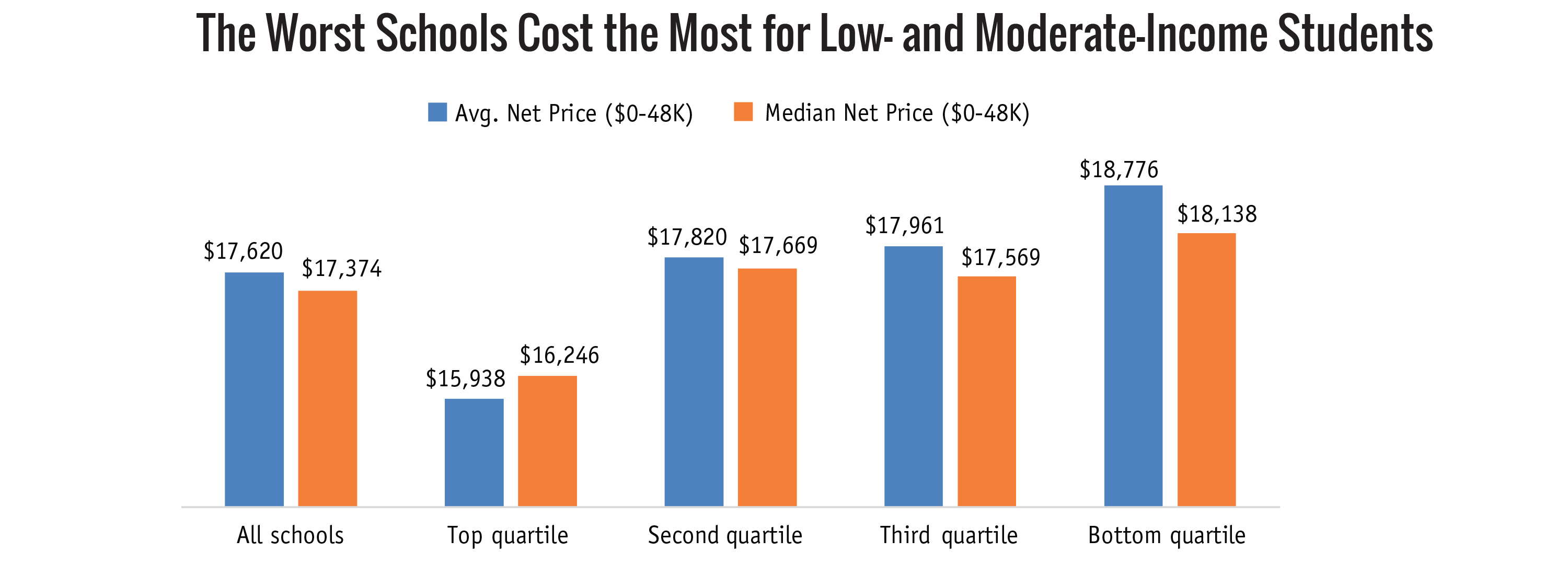
Many students and families assume that the more expensive a college is, the more prestigious and the higher its quality.
This leads some families to overpay for college under the assumption that there is a positive correlation between price and education quality.
But a recent report from Third Way found that that’s not the case.
In fact, they found the lowest-ranked colleges charged low- and moderate-income students more than higher-ranked schools.
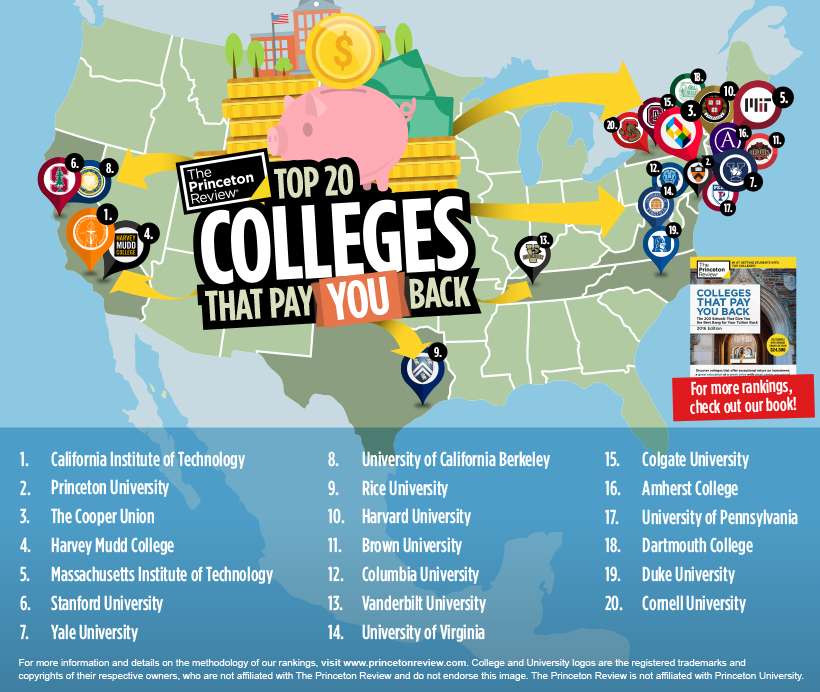
We write a lot about evaluating the return on investment of a college when deciding where to attend.
With the price of college rising each year, it’s an extremely important factor to consider when choosing a college and spending thousands of dollars to attend.
To help you figure you the real value of college, The Princeton Review put together a list of the colleges that provide the best return on your investment.
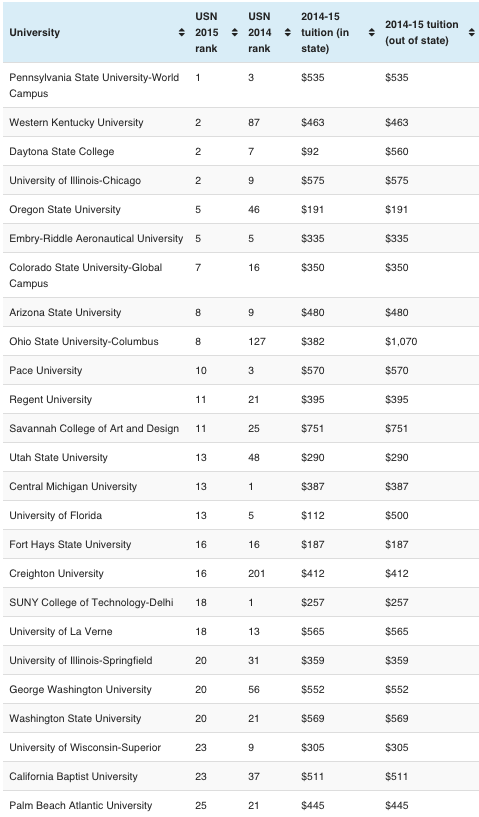
While most students opt for the traditional residential college experience, an online degree can be a good option for someone who’s also working full time while earning a degree, or for older, non-traditional students.
Of course, not all online colleges are created equal. Before investing in an online degree, it’s important to make sure the college offer a quality educational experience and consider factors like faculty credentials, student services, and tuition costs.
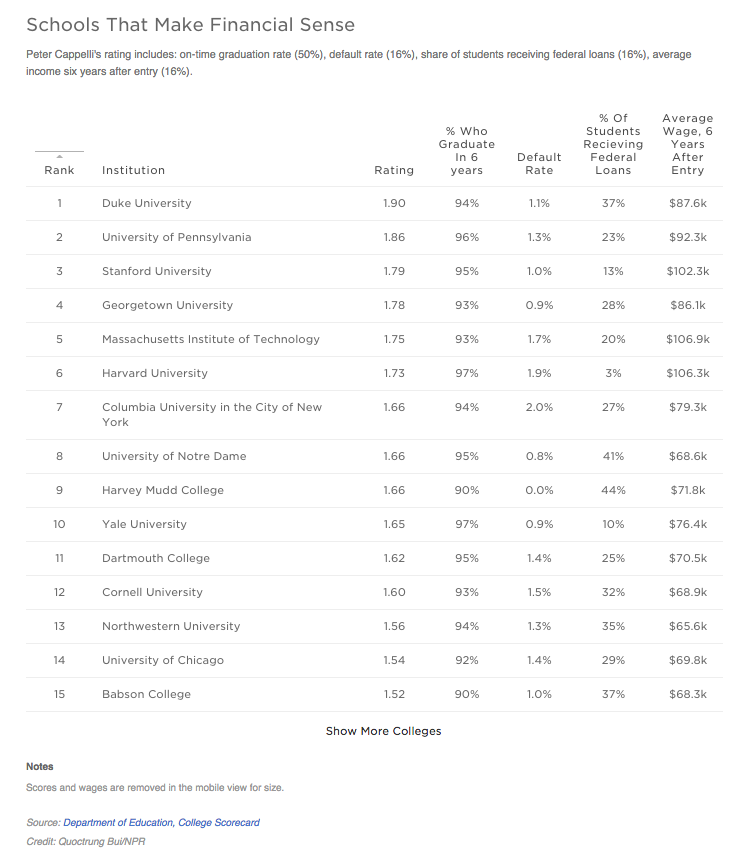
There are plenty of college rankings out there based on all sorts of different factors–quality of student, price, return on investment and more.
In light of President Obama’s decision not to provide federal rankings for colleges in favor of a College Scorecard, NPR took matters into their own hands and released their own set of three different college rankings.
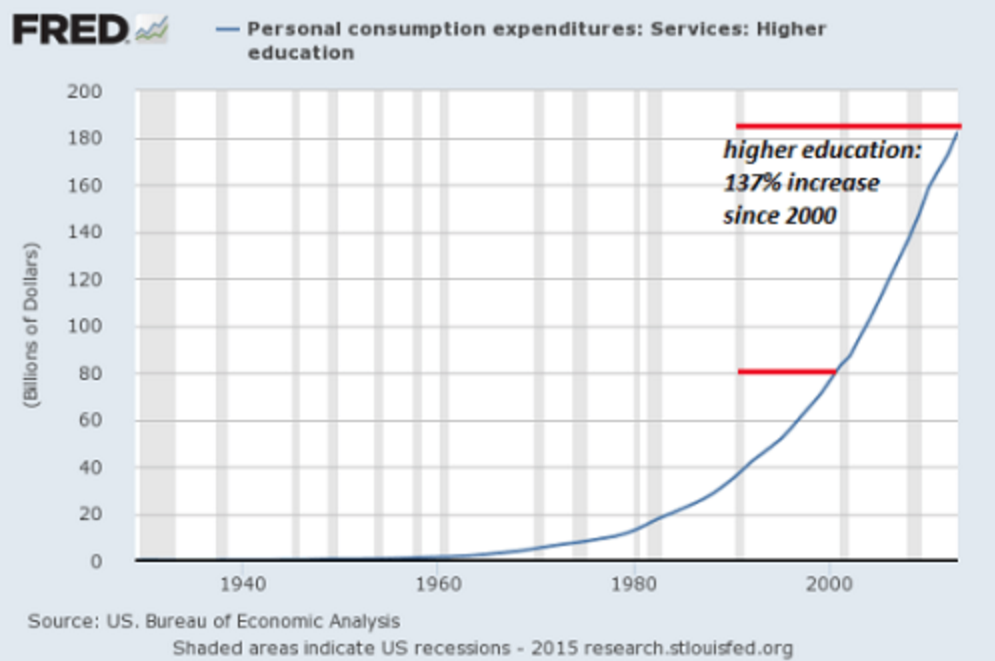
It’s well known that the student loan crisis has gotten out of control and continues to grow every second. According to Business Insider, student debt has skyrocketed from $500 billion in 2006, just 9 years go, to over $1.3 trillion today. Many people in government have proposed student loan forgiveness and other strategies to help reduce […]
We write frequently about the importance of making the most of your college investment.
Given that college is so expensive, it’s crucial for students to maximize their experience and take advantage of opportunities in order to put themselves in the best position come graduation time.
We write a lot about the importance to maximizing the return on investment of your college degree before, during and after college.
Unfortunately, the majority of recent college graduates don’t ‘strongly agree’ that their college experience was worth its high cost–most likely because they had to take out large student loans to help pay for it.
According to Forbes, a recent Gallup-Purdue Index study surveyed 30,000 recent college graduates and found that only half said that they “strongly agree” that their diploma was worth the money they paid to obtain it.
Why is college so expensive? Is it worth the investment? VICE News recently aired a segment on the rising cost of college and asked a panel and viewers those questions, among others about the increase in student debt and how different college degrees affect future earnings. Is college worth the cost? The panel included Student Voice’s […]
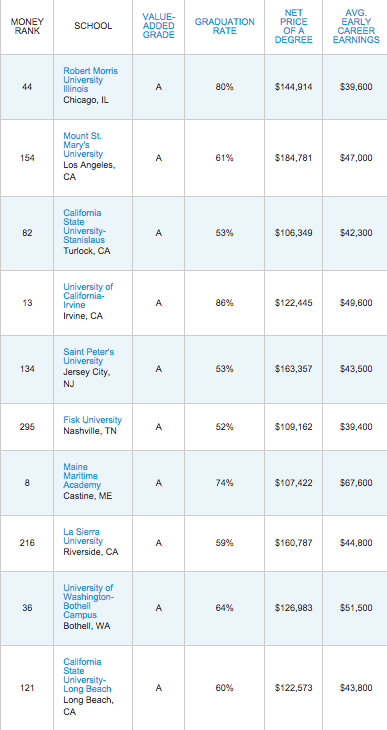
In an era of sky-high college costs, it’s extremely important to consider a college’s ROI before committing to potentially take out tens–or even hundreds–of thousands of dollars in student loans to go there.
But it can be difficult for students and families to assess the value of a college before deciding whether or not to attend. Many factors, including the student’s major, will play a role in the long-term value of the degree.